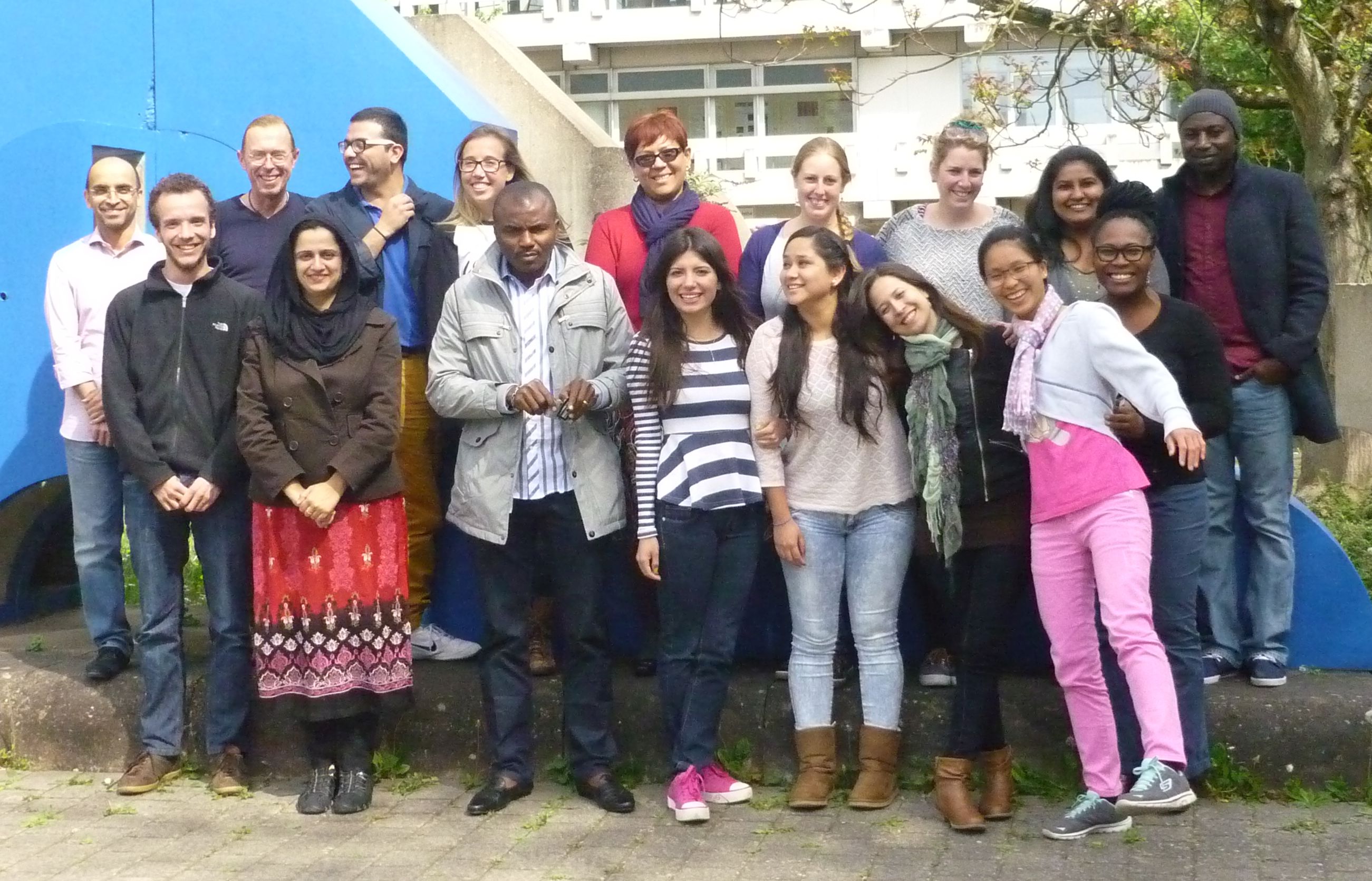Even among the poor, health problems are most often avoidable or curable; what’s often missing is the political will. Detailed analysis of a given situation can provide the necessary impetus to act. The key is making the right decision – an art and science being taught at Heidelberg University’s Institute of Public Health.

Participants in the Short Courses in International Health at Heidelberg University are already experts in public health© International Health University of Heidelberg
Among the diseases afflicting parts of Africa and Latin America is onchocerciasis, an often neglected tropical disease. Also known as river blindness, it is caused by a parasitic worm (Onchocerca volvulus) transmitted by black fly that live and breed along rivers and streams. Lack of prevention and treatment is common, since the disease mainly affects the poor. Only gradually have the affected countries recognized the larger consequences of the disease beyond the individual level. When disease victims or family members can no longer take part in working life, the cumulative impact is felt on whole economies and societies.
Detailed analyses of the situation by public health experts provided the impetus to raise awareness and put a stop to the downward trend. In the 1970’s, efforts to fight river blindness were finally launched with the help of a free medication, whose distribution was coordinated by the World Health Organisation.
“Participants in our programme learn how to apply these kinds of facts to make decisions and follow through on implementation,” says Olaf Horstick, lecturer at the Heidelberg Institute of Public Health and coordinator of the 5-day short course “Decision Making in Public Health: Evidence or Politics?”. The course took place for the fourth time as part of the Master of Science in International Health (MScIH) and the Network for Education in International Health (tropEd), a network of 31 universities worldwide including Heidelberg University. It was a chance for the 20 international participants in the course to practice making decisions based on facts and evidence. “The participants are already experienced in the area of public health,” explains Horstick. “The course is about applying their knowledge in mixed groups, which is what they need to do when solving health problems in their work.”
Finding reliable evidence
Moody Samuel, a DAAD scholarship holder from Egypt enrolled in the MScIH in Heidelberg, expressed high regard for the course format: “In our home country we are dealing with different health problems and different cultures, but the methods for finding solutions are the same regardless of such differences.” With the help of case studies, course participants considered key questions: Does the evidence indicate a real health problem? What forms of intervention are effective and also economical? Does the proposed intervention fit into the respective cultural context? On the last day of the course, participants’ presented their solutions.
“Decisions need to be based on reliable and high-quality evidence,” says Dr. Ayesha Humanyun, professor at the Shaikh Khalifa Bin Zayed Al-Nahayan Medical College and at the Federal Postgraduate Medical Institute at the Shaikh Zayed Medical Complex in Lahore, Pakistan. “Being able to find, evaluate and present such proof is an art, and the course helped me further develop my ability to do this.” For Moody Samuel, himself a physician and public health officer, the course deepened his understanding of evidence-based decision making and the importance of applying this approach. “We cannot make decisions – decisions about people’s lives – without basing them on sound facts,” says Samuel. “I am going to take what I learned here and apply it in my work back home, and do what I can to familiarise people with these methods.”
Sensible distribution of resources
Ayesha Humanyun wants to offer the course in Lahore as a way to teach students the right decision-making techniques. “In Pakistan health-related decisions are often politicised and that needs to change,” says Humanyun. “Evidence-based decisions can be used to prevent waste and ensure a sensible distribution of resources.”
Links:
Additional information on the Short Courses in International Health
Additional information on the Master of Science in International Health MScIH at Heidelberg University





